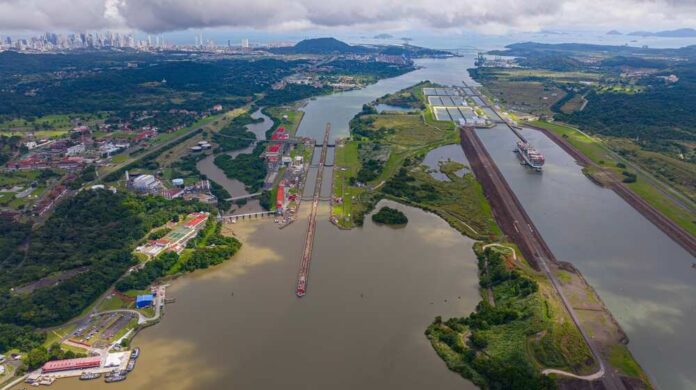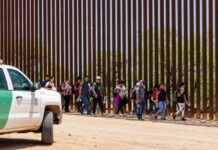
China is now desperately blocking US investment firm BlackRock from purchasing Panama Canal ports, exposing Beijing’s stranglehold on vital global trade chokepoints.
The Chinese government has launched a full-scale opposition campaign against the sale of two strategic Panama Canal ports from Hong Kong-based CK Hutchinson to American investment giant BlackRock. This high-stakes geopolitical chess move reveals China’s determination to maintain control over one of the world’s most critical maritime passages, through which approximately 3% of global maritime trade flows. The blocked deal, part of a massive $23 billion transaction involving 45 ports across 23 countries, highlights the intensifying battle between the US and China for dominance over international shipping routes. Chinese President Xi Jinping reportedly views these ports as crucial leverage in ongoing economic warfare with America.
China’s Desperate Power Play at the Panama Canal
For nearly 25 years, Hong Kong’s CK Hutchinson has operated two of the five ports bordering the Panama Canal. While technically a private company, CK Hutchinson’s operations in this strategic location have long provided Beijing with backdoor influence over this crucial maritime chokepoint. Now that the company has agreed to sell these assets to BlackRock as part of a broader $23 billion global ports deal, Chinese officials are frantically throwing regulatory roadblocks in the way. Beijing’s antitrust regulators have suddenly discovered an intense interest in the transaction, essentially threatening to torpedo the entire multi-continent deal if BlackRock gets anywhere near Panama.
This isn’t just business – it’s a naked power grab on the global stage. Pro-Beijing media outlets in Hong Kong have dropped any pretense of subtlety, openly criticizing the potential sale as harmful to China’s national interests and framing it as part of America’s strategy to “contain” Chinese expansion. The nerve of these propagandists is almost impressive – they’re effectively admitting that what Beijing really wants is continued control over other nations’ critical infrastructure. Of course, if the situation were reversed and America was operating ports in the South China Sea, the Chinese Communist Party would be apoplectic.
Xi Jinping’s Personal Grudge and Panama’s Strategic Value
According to reports, Chinese President Xi Jinping himself is deeply displeased with the potential deal. In the eyes of China’s authoritarian leadership, these Panama Canal ports represent more than just commercial real estate – they’re strategic assets in the ongoing economic competition with the United States. Xi reportedly views control of these ports as potential bargaining chips in tariff negotiations and a counterbalance to American naval power. It’s a stark reminder that while Western businesses often view international trade through a purely economic lens, the Chinese Communist Party never separates economics from military and political dominance.
The Panama Canal’s strategic importance cannot be overstated. As a maritime crossroads connecting the Atlantic and Pacific, it serves as a vital transit route for global shipping, allowing vessels to avoid the lengthy and treacherous journey around South America. During the Trump administration, officials recognized this reality and pushed Panama to withdraw from China’s Belt and Road Initiative – Beijing’s global infrastructure scheme that creates economic dependency and political leverage over participating nations. The current standoff demonstrates that those concerns were entirely justified.
China’s Plan B: Anyone But America
Facing the potential loss of its Panama Canal influence to an American company, China appears to be pursuing a backup strategy. Reports indicate that CK Hutchinson is now in discussions with the Swiss-based Mediterranean Shipping Company as an alternative buyer. This arrangement would resolve the immediate issue of direct Chinese control without allowing the United States to gain a strategic advantage. It’s a classic example of Beijing’s “anyone but America” approach to global affairs – a Swiss company represents the lesser threat in China’s geopolitical calculations.
The outcome remains uncertain, but what’s crystal clear is that China’s objections have nothing to do with concerns about monopolies or fair competition. This is pure power politics dressed up in regulatory language. The Chinese Communist Party understands something that too many Western leaders seem to forget: control of vital shipping lanes translates directly into economic leverage and military advantage. By blocking American acquisition of these ports, China is protecting its ability to potentially disrupt global trade routes during any future confrontation – a sobering reality that should concern every American.
America’s Wake-Up Call
This Panama Canal drama serves as yet another wake-up call about China’s relentless pursuit of global control points. For decades, America has operated under the naive assumption that increased trade with China would inevitably lead to liberalization and peaceful cooperation. Instead, Beijing has systematically exploited Western openness while maintaining an iron grip on its own strategic assets. The attempted port purchase intervention demonstrates that China views international commerce not as a path to shared prosperity, but as a zero-sum game where America’s gain is automatically China’s loss.
As this high-stakes negotiation unfolds, Americans should demand that our government stand firm against Chinese intimidation tactics. Control over the Panama Canal – built with American blood, sweat and ingenuity – should not be subject to Communist Party veto power. While BlackRock is hardly a paragon of conservative values, in this particular chess match they represent American interests against an increasingly aggressive foreign competitor. The Biden administration must recognize what’s really at stake here: not just corporate profits, but America’s ability to maintain free navigation through one of the world’s most crucial waterways.




















